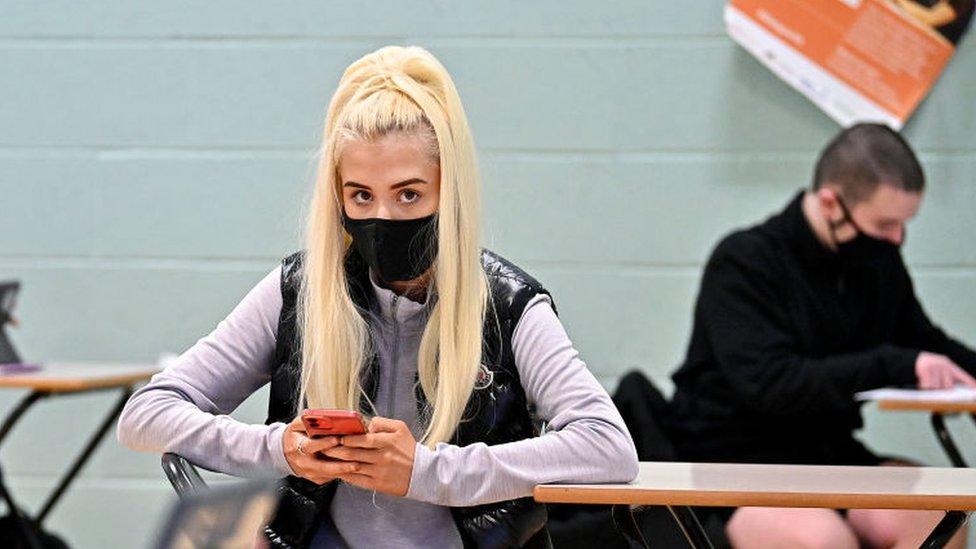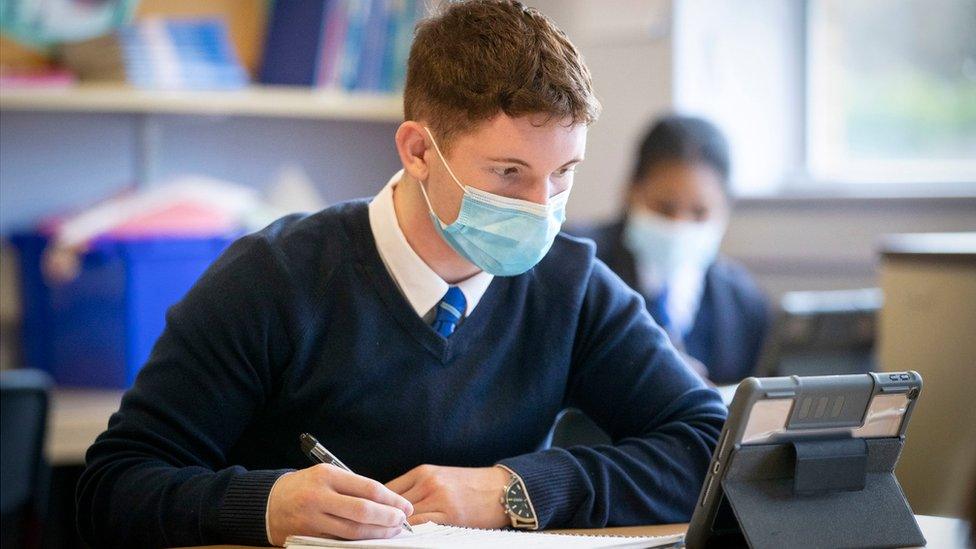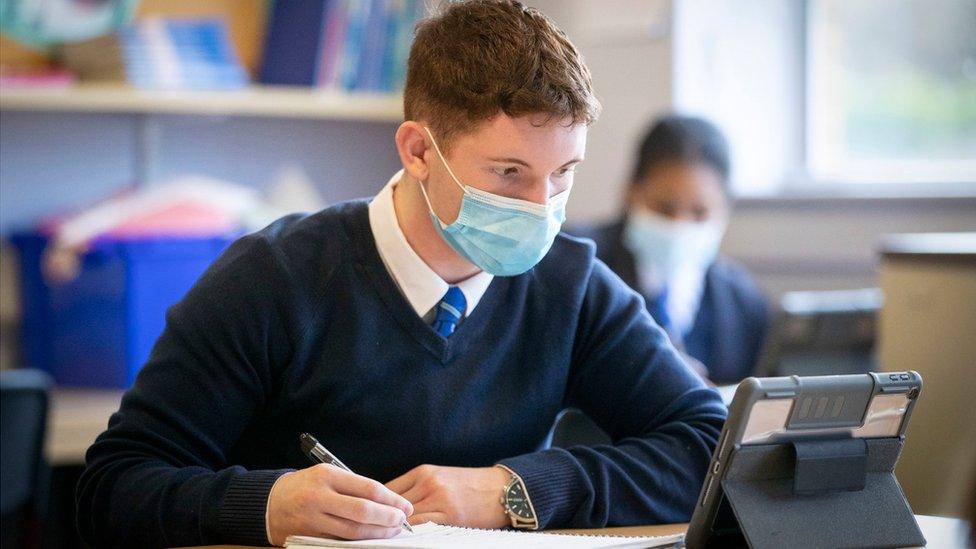Covid in Scotland: 'Day is coming' for end of face masks in schools
- Published
- comments

The "day is coming" when the use of face masks in Scotland's schools will end, a top government adviser has said.
The Scottish government's national clinical director, Prof Jason Leitch, said he believed the requirement to wear masks in schools will be withdrawn soon, but he did not know when.
Prof Leitch also said science had now been able to "de-fang" Covid, and the worst was likely behind us.
However, he warned future restrictions could still be needed.
Asked on the BBC's Good Morning Scotland programme about when face masks in schools would be discarded, Prof Leitch said "I honestly don't know" but that advice would follow.
He said an education recovery group, chaired by the public health expert and government adviser Linda Bauld, would make recommendations to government clinicians about the timing of the removal.
He said the group included education and public health experts as well as union and parent representatives.
"They'll give us advice to remove them when they think it's appropriate and I think that day is coming," he said.
Earlier this week, a leading Covid expert predicted the use of face masks in schools could end in February.
And Deputy First Minister John Swinney said he hoped the rules would not still be in place when exams start in May.
In England, the requirement for face masks to be worn in secondary school classrooms was scrapped from Thursday 20 January. The guidance on their use in communal areas in English schools is also expected to be removed shortly.

What are the current rules on face masks in Scotland?

In Scotland, masks must be worn in most indoor public spaces.
They are compulsory for all school staff as well as secondary school pupils and are required in indoor public spaces in universities.
The are also required on public transport, and in shops and gyms (although they can be temporarily removed when exercising).
They must be worn in pubs and restaurants when not seated, and in the workplace in communal areas and canteens.

Scottish Conservative health spokesman Sandesh Gulhane said it was clear that experts and Scottish government advisers believed the government should be looking to remove the requirements for face masks in schools.
Dr Gulhane continued: "The SNP must stop dragging their heels on this and end this restriction as soon as possible.
"Face masks have a negative impact on learning, especially for those children with extra needs, and, after two years of disruptions caused by the pandemic, pupils, teachers and parents want some normality restored to education.
"But once again, we're witnessing a government that's too quick to impose harsh restrictions and too slow to ease them."
'De-fanged the virus'
Prof Leitch was also asked about a claim by another public health expert, Prof Devi Sridhar, that science had "de-fanged" the virus.
He agreed, and said it was also right to think about how the remaining restrictions should be removed.
Pointing to working from home, testing and contact tracing, vaccination, and face coverings, he said these had to be removed gradually.
"We've learned removing the plaster all at once goes badly.
"So don't do it all at once. Do it gradually."
He added: "I think we have de-fanged the virus to some extent, and I think these things will in time go."
The number of people infected with Covid in the UK is falling, according to the Office for National Statistics. It said one in 20 people in Scotland tested positive for the virus last week.
'Endemic doesn't mean mild'
Prof Leitch said most coronaviruses end up endemic in a population - but he said that should not be confused with necessarily meaning mild.
"Endemic doesn't mean mild. Malaria is endemic. Malaria kills 600,000 a year."
But he said, in time, we would learn more about the virus and how to deal with it.
However, he said we were "coming out to the Omicron wave" and that he did not think the country would ever need to go back to a full lockdown.
"I cannot tell you what happens next - but we can hope the next variant will be better," he added.
"I think we might have tricky moments on the way out, but I'm hopeful today because Omicron is diminishing."


- Published19 January 2022
